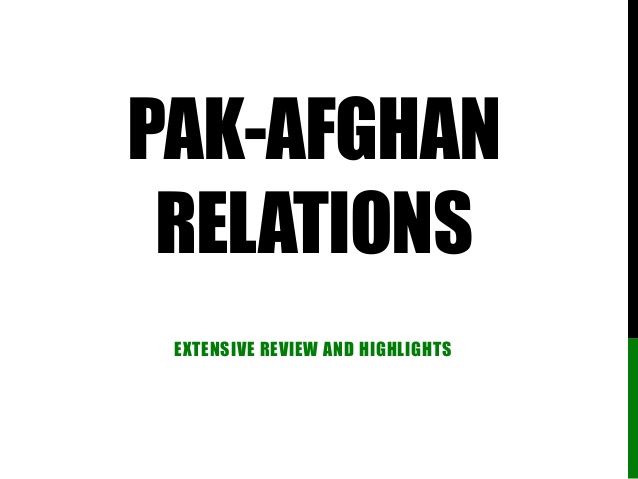Imtiaz Gul |
Multi-tier border management mechanism, a Pakistani demand stone-walled by Kabul on the pretext that “terrorists don’t use regular border crossings”.
Ahead of the multi-nation Moscow peace initiative centered on Afghanistan, behind-the-scenes activity on Pak-Afghan relations seems to be picking up. The mid-March London meeting between Sartaj Aziz and Hanif Atmar seems to have set the ball rolling on two major issues. London paved the way for Afghan leaders’ quiet agreement on a multi-tier border management mechanism, a Pakistani demand stone-walled by Kabul for quite some time on the pretext that “terrorists don’t use regular border crossings”.
Read more: Pak-Afghan Border Reopened: Alternatives for Pakistan?
A step forward towards dialogue (pre-Moscow talks)
Secondly, thanks to the Afghan ambassador Omar Zakhilwal’s proactive diplomacy, both countries may be heading towards the resumption of formal dialogue before the Moscow meeting. An unusual sense of urgency is evident from Zakhilwal’s shuttle between Kabul and Islamabad.
Politically loaded circumstances, too, demand swift action for the resumption of formal contacts on the way to the restoration of trust and initiation of counter-terrorism cooperation based on the border management mechanism as a major step forward. Pakistani and foreign diplomats appreciate Kabul’s limitation in an extremely volatile situation, yet they argue that while the Afghan leadership has to be mindful of the domestic audience (opposition to any formalization of the border i.e. Durand Line), it does carry a responsibility of honoring the trilateral understanding on border management.
Securing borders is the foremost responsibility of every country, diplomats concurred.
Even a little cooperation in border management would possibly amount to a clear departure from Kabul’s covert and overt position thus far; most of them insisted that counter-terrorism cooperation was contingent upon military action against Afghan Taliban/Haqqani network in Pakistan. This demand, accompanied by deadly terrorist attacks on either side of the Durand Line, yielded little results except precipitating tensions and injecting more bitterness in relations that led to the 32-day arbitrary closure of the border on February 17.
Read more: Afghan Taliban ‘too strong’ to enter peace talks with Kabul
The closure, as businessmen point out, cost Afghans some 49 million dollars, while Pakistani businesses lost some 170 million dollars – a sad reflection on the state of relations between the so-called conjoined twins.
The situation requires Pakistan to indulge in some deep introspection on its treatment of Afghanistan – articulated recently by Gen. Nasir Khan Janjua, the National Security Advisor. ‘We should not think about Afghanistan with anger and must work to fix the relationship’, Janjua underscored on the sidelines of a conference on March 27.
Leniency for Afghan refugees and visitors
Pakistan’s new lenient visa policy for Afghan nationals, too, reflects the realization that for too long Pakistani officials looked at it only as a refugee issue. Now, following intense lobbying by civil society groups and intelligentsia, Pakistan has a much more matter-of-fact approach, the first big step towards looking at it as an issue linked to Pakistan’s socio-political and economic interests as well as critical for its image abroad. For too long, Pakistani policy makers failed to relate the policy on refugees as Pakistan’s own problem.
Read more: Afghan Refugees in Pakistan: A Continuing Challenge
Counter-terrorism cooperation was contingent upon military action against Afghan Taliban/Haqqani network in Pakistan.
Secondly, latest geopolitical developments underscore some bitter realities; an unfolding fierce contest between the US, that provides nearly $ 6 billion a year for the Afghan Security Forces, and the Moscow-China-led regional peace initiative that has now co-opted almost a dozen countries, including regional powers such as Iran and India.
This competition should ideally also trigger realization among key stakeholders that following active Iranian, Chinese and Russian contacts with the Afghan Taliban, the policy of dumping everything at Pakistan’s doorstep and blaming it for all ills of Afghanistan, has lost relevance.
The sects of the Taliban
the Afghan Taliban/Haqqanis have yet to be declared as terrorists by Kabul and outsiders
Thirdly, comparisons between Afghan and Pakistani Taliban are misplaced. The Afghan Taliban, by virtue of their Doha office and their parleys with Russian, Iranian, Chinese officials, enjoy international recognition as a stakeholder in Afghanistan.
Read more: Why Pakistan needs to revisit its Afghan policy & how?
The Pakistani Taliban are neither recognized nor have any locus standing.
The Pakistani Taliban – on the contrary, are neither recognized nor have any locus standing. There is no compulsion to talk to such militants, who are primarily pawns in a sponsored proxy war, while the Afghan Taliban/Haqqanis have yet to be declared as terrorists by Kabul and outsiders.
Fourth, for all practical reasons no other nation can outweigh the bonds of cultural and ethnic affinity that exist between Pakistan and Afghanistan. Fifth, Afghans, as big beef eaters as Pakistanis themselves, probably are watching in awe what the Hindutva vigilantes are doing to cow-beef eaters. This should also make it clear to them that behind the famous Modi-Ghani embrace lies the strategic design of running down Pakistan through Afghanistan, i.e. using this conflict-torn country to inflict pain on Pakistan.
Read more: Afghanistan’s Options: India’s Treachery or Regional Cooperation
There is a lot more positive between Pakistan and Afghanistan to build on instead of holding it hostage to one or two negatives.
Imtiaz Gul is the founder and Executive Director of the Centre for Research and Security Studies (CRSS), an Islamabad-based think tank. He is the author of Pakistan: Pivot of Hizbut Tahrir’s Global Caliphate. This article was originally published in Daily Times and has been republished with permission. The views expressed in this article are the author’s own and do not necessarily reflect Global Village Space’s editorial policy.














